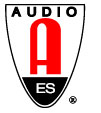|
Description:
“Never in the history of mankind have humans listened to such compressed music as we listen to now.”
(Bob Ludwig)
Audio Mastering is the final stage of quality control before music
goes public. Mastering engineers traditionally make small adjustments
to EQ, compression, gain and other parameters to help the recording
sound as good as possible in different listening environments. Many
people interpret this final processing step as the means to make music
sound “more commercial”; or worse, to compete in loudness with
increasingly over-compressed and distorted masters.
I’ll offer a quick and lighthearted introduction to the ideas and
technologies behind audio mastering, show some examples of “good
sounding” and “bad sounding” masters, discuss the future of commercial
recording, and ways to stop the Loudness Wars.
About the speaker:
Known primarily as a recording artist, Robert Rich has helped define ambient and electronic music styles over three decades and dozens of albums. Rich began building his own analog synthesizers in 1976, when he was 13 years old. He later studied for a year at Stanford's prestigious Center for Computer Research in Music and Acoustics (CCRMA) while earning a degree in psychology.
As a mastering engineer, Robert Rich started in the late 1980s alongside Motown veteran Bob Ohlsson. Rich developed an audiophile reputation for his own spacious recordings and for his engineering work on numerous electro-acoustic, jazz and world music albums during the 90s. He now splits his time between his own recordings and mastering for independent musicians in all styles. He also serves as adjunct professor at Cogswell College, teaching a course on audio mastering.
Alongside his own recording and mastering work, Rich's musical scores grace numerous short films and documentaries, and his sound design appears in such larger films as Pitch Black, Crazy Beautiful, Behind Enemy Lines, Dead Girl and others. Rich works closely with electronic instrument manufacturers, and his sounds fill the libraries of products by Emu, Seer Systems, Big Fish, Sony, Camel Audio, WayOutWare and Synthesis Technology. Rich has written software for composers who work in just intonation, and he helped develop the MIDI microtuning specification, which was accepted as an industry standard.
More information at
robertrich.com
Address & Directions:
Cogswell Polytechnical College
1175 Bordeaux Drive
Sunnyvale, CA 94089
map >>>
From the East Bay - Take 880 to 237 west. Exit on Mathilda Ave. north. Turn right on the
frontage road and then left onto Bordeaux Drive. The meeting is in the auditorium.
From the Peninsula - Take 101 to 237 east. Exit on Mathilda Ave. north. Turn right on the
frontage road and then left onto Bordeaux Drive. The meeting is in the auditorium.
Parking:
College lot
|

